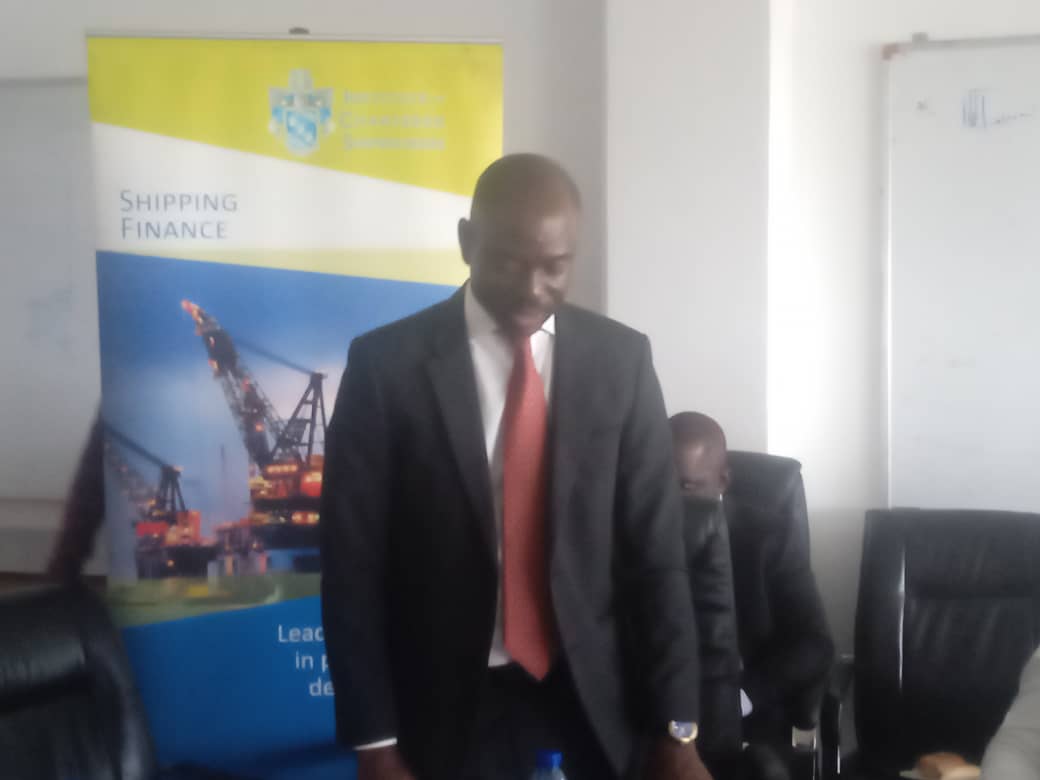
The Nigeria Chapter of the Institute of Chartered Shipbrokers (ICS) has elected Mr. Olusesan Ajayi, FICS, as its new Chairman.
The election took place during the Institute’s Annual General Meeting (AGM) held in Lagos over the weekend, marking an important moment as the organization welcomed a new set of leaders, including other elected officials.
In his acceptance speech, Ajayi expressed his gratitude and acknowledged the challenges ahead, stating that he had been well-prepared for the role over the past decade.
He emphasized the importance of education, training, and innovation as key priorities for his tenure. Ajayi also outlined plans to establish various committees, including those focused on education and training, membership, and research and innovation, to ensure that the Nigerian Chapter aligns with global standards and remains at the forefront of the shipping industry.
He highlighted the need to address the skills gap within the shipping industry, noting the rapid technological advancements and the shift towards green energy.
He expressed a commitment to ensuring that members of the Institute are equipped with the necessary knowledge and skills to thrive in the evolving maritime sector. “We need to start developing human capital that will fill in these positions in line with the dictates of the Institute,” Ajayi said.
He further emphasized the importance of capacity building in driving policy changes and attracting investments in Nigeria’s commercial shipping sector.
Ajayi called for greater collaboration with financial institutions and government agencies, such as the Nigerian Content Development and Monitoring Board (NCDMB), to support the industry’s growth and create employment opportunities for qualified members.
Alongside Ajayi, the newly-elected executive committee includes: Bello Turkur as Vice Chairman, Sampson Arigbede as General Secretary, Ola Alabi as Treasurer.Ijeoma Achodo as Deputy Secretary, Samuel Ebidunmi as Head of Education and Training, Tobi Alade as Public Relations Officer,
During the AGM, Capt. Samuel Olarewaju, Chairman of the ICS West Africa Branch, delivered a welcome address in which he commended the dedication and hard work of the chapter committee in organizing the event.
He expressed his pride in the Institute’s achievements despite the challenges faced by the industry in the past year. Olarewaju emphasized the importance of leveraging the Institute’s global network for professional development and urged members to work towards improving the Institute’s standing both in Nigeria and internationally.
“The resources, the education, and the networking opportunities provided by our Institute are invaluable,” Olarewaju said. “We must continue to work towards making sure we improve and grow, not just for ourselves, but for the benefit of the entire West African region.”
Olarewaju also highlighted the need for unity and collaboration within the Institute, encouraging members to volunteer, contribute to events, and participate in the various communities within the ICS. He stressed that only by working together as a formidable team could the Institute achieve its goals and expand its influence in the maritime sector.
Delivering a paper earlier, Capt. Tami Adu, a veteran ship broker delivered a paper titled “Navigating the Future of Maritime Industry: Challenges and Opportunities for Chartered Shipbrokers in Nigeria.”
In his presentation, Capt. Adu delved into the transformative trends reshaping the global maritime landscape, emphasizing the critical role that shipbrokers must play in adapting to these changes.
He noted that the maritime industry is currently undergoing a period of rapid transformation, driven by technological advancements, environmental regulations, and shifting global trade patterns.
Adu stressed that the future of the industry would be heavily influenced by how well professionals could anticipate and respond to these developments.
Capt. Adu underscored the impact of digitalization and automation on maritime operations. He pointed out that technologies such as blockchain, artificial intelligence (AI), and big data analytics are revolutionizing the way shipping companies manage logistics, fleet operations, and customer interactions.
“As chartered shipbrokers, it is imperative that we not only understand these technologies but also leverage them to provide more efficient and value-added services to our clients,” Adu stated.
Speaking further Adu highlighted the growing importance of environmental sustainability in shipping, driven by international regulations such as the IMO 2020 sulfur cap and the push towards decarbonization.
He emphasized that shipbrokers must be knowledgeable about green shipping practices and alternative fuels like LNG, hydrogen, and ammonia, which are becoming increasingly relevant. “We must position ourselves as advisors to our clients on how to navigate these regulatory requirements while optimizing their operations for environmental compliance,” he added.
He further explained that the global trade landscape is shifting, with emerging markets, new trade routes, and geopolitical factors reshaping shipping routes and demand.
Adu discussed the implications of these changes for Nigerian shipbrokers, particularly the opportunities that could arise from the African Continental Free Trade Area (AfCFTA). “Nigeria has the potential to become a major player in regional trade, but this will require shipbrokers who are well-versed in international trade policies and capable of facilitating seamless cross-border transactions,” he explained.
Emphasizing the need for continuous professional development, Capt. Adu urged members of the ICS to invest in their education and training to stay competitive in the global market. He highlighted the importance of acquiring new skills in areas such as digitalization, green shipping, and trade finance.
“The future belongs to those who are willing to learn, unlearn, and relearn. We must be proactive in equipping ourselves with the skills needed to navigate the challenges and opportunities ahead,” Adu advised.
He concluded his presentation by calling for greater collaboration within the industry and the adoption of innovative practices. He encouraged shipbrokers to engage in partnerships with technology providers, research institutions, and government agencies to drive innovation and create value for the maritime sector.
“The maritime industry is at a crossroads, and we have the unique opportunity to shape its future. Let us work together to foster a culture of innovation that will propel the Nigerian maritime industry to new heights,” Adu concluded.















